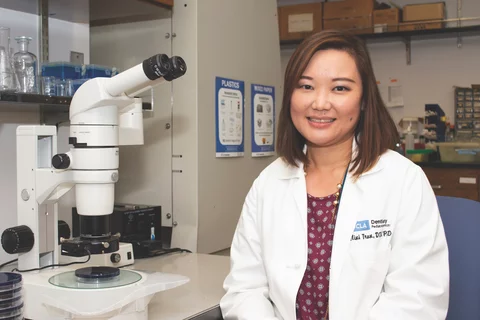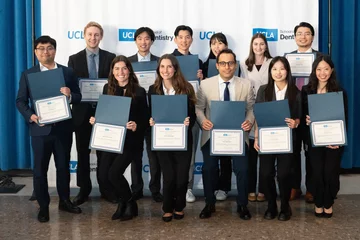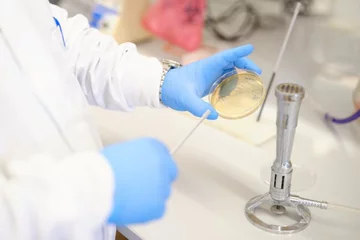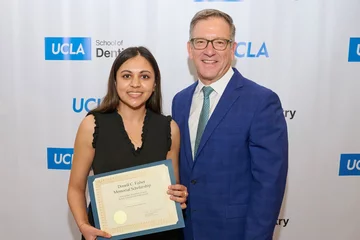Tran Considers Caries Through Multiple Lenses
Two studies led by Dr. Nini Tran examined how S. mutans – considered the primary caries pathogen – “conspire” with other species in the oral microbiome and tooth surface factors to exacerbate childhood caries.

Assistant Professor of Pediatric Dentistry Dr. Nini Tran spent much of the 2021-22 academic year studying conspiracies. These didn’t involve the government or UFOs, but rather how S. mutans – considered the primary caries pathogen – “conspire” with other species in the oral microbiome and tooth surface factors to exacerbate childhood caries.
Tran served as principal investigator (PI) on "Oral Microbiome:
Streptococcus mutans/Caries Concordant-Discordant Children” (Frontiers
in Microbiology, Feb. 2022), examined the influence of the levels of S.
mutans on other bacteria and eventual caries outcomes. Researchers
found that S. mutans, which account for less than 1% of the entire oral
microbiome, can orchestrate and shape the composition of the entire community ... regardless of caries outcome. Study participants with high S.mutans levels were found to have significantly increased “disease” bacteria species such as Veillonella dispar, Streptococcus spp., and Prevotella spp., while those exhibiting low S. mutans levels tended to have higher levels of “healthy” microbiome species such as Veillonella rogosae, Haemophilus sp., and Alloprevotella spp. The results suggest that future caries research should consider how these microbial markers act in conjunction with
S. mutans, to improve diagnosis and caries management within patients considered at-risk for cavities.
As all bacteria require a host, Tran’s team concurrently led a study on “Tooth-Specific Streptococcus mutans Distribution and Associated Microbiome” (Microorganisms, May 2022), examining S. mutans in posterior teeth at different dentition stages along with the corresponding tooth-specific microbiome. Researchers found that S. mutans exhibit a preference as to which tooth they like to inhabit. After identifying distinct tooth-specific core microbiomes, their findings highlight the clinical importance of individual tooth susceptibility to dental caries and suggest that caries susceptibility in children is a confluence of factors: tooth type and dentition stage, individual bacterial species, and plaque community.



